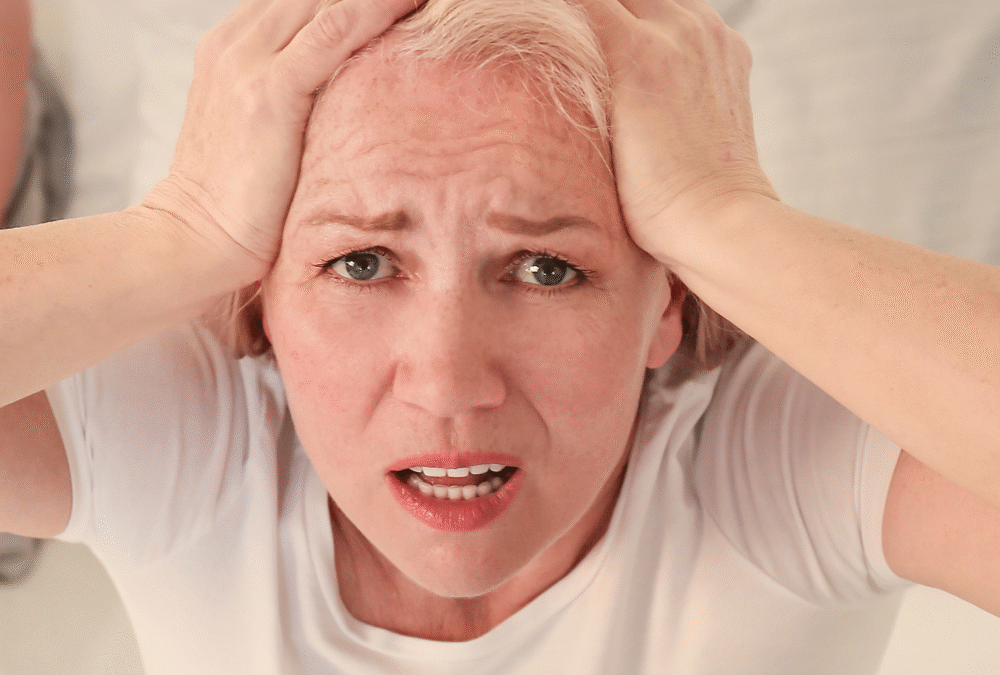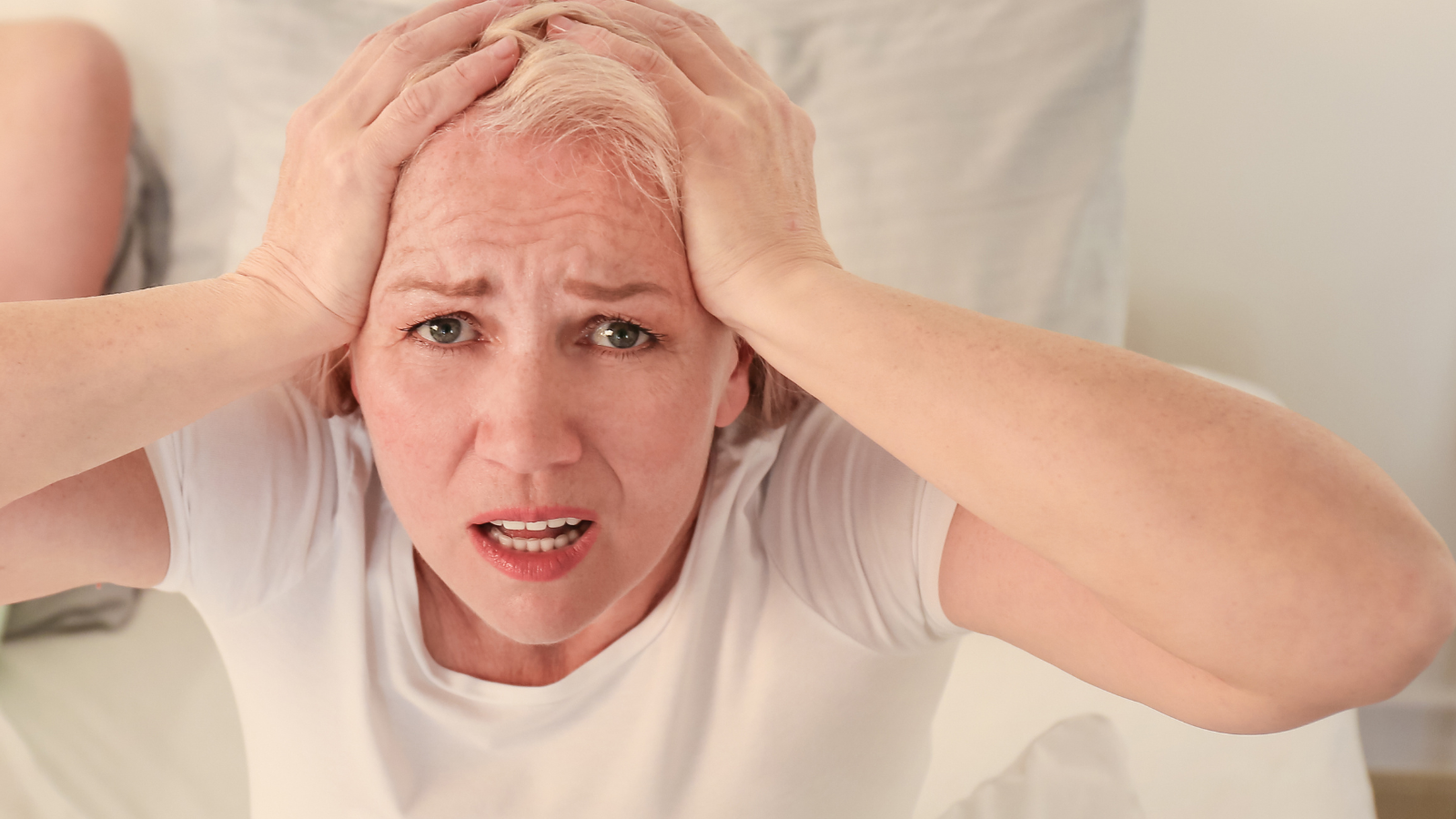
How Perimenopause and Menopause Changes Brain Chemistry and Impacts Our Neurotransmitters

Perimenopause and menopause are defined by large, sometimes chaotic falls in ovarian hormones — primarily estradiol (estrogen) and progesterone. When this happens these hormone changes have measurable downstream effects on our brain chemistry. This can result in mood changes, anxiety, sleep problems, hot flashes, and memory/attention issues.
Women typically go through perimenopause in their mid 40’s and this can last on average 4 years but can be as long as 8 years. Menopause (when periods have fully stopped typically occurs around 51 but obviously there are huge fluctuations with that). Many people are surprised to learn that the drop in hormones has a huge impact on the brain’s chemical messengers — called neurotransmitters.
Understanding which brain chemicals are impacted — and what you can do about it — can make this transition easier.
Why Hormones Matter for Your Brain
Estrogen and progesterone aren’t just reproductive hormones. They play powerful roles in the brain, where they interact with neurotransmitters that regulate mood, thinking, energy, and sleep.
Estrogen
- boosts serotonin (the “feel-good” chemical)
- boosts dopamine (motivation, focus and reward)
- boosts acetylcholine (memory and focus).
Progesterone
- is converted into a substance called allopregnanolone, which helps the neurotransmitter GABA to calm the mind and promote a sense of relaxation.
When these hormones decline in perimenopause and menopause, the balance of brain chemistry shifts — often in ways that make people feel more anxious, moody, forgetful, and tired.
The Neurotransmitters Most Affected
- Serotonin — mood, sleep, and thermoregulation
What changes: Estrogen helps the brain make and use serotonin when estrogen drops, serotonin levels can fall too. Clinically, this is linked to higher rates of depression, mood swings, irritability, sleep problems, and even hot flashes (since serotonin helps regulate body temperature). (1)
Research shows that perimenopausal women have a 40% higher risk of experiencing depression than premenopausal women.
- GABA (gamma-aminobutyric acid) — inhibition, anxiety, and sleep
What changes: Progesterone is metabolized in the brain to allopregnanolone, which helps GABA calm the nervous system. With falling progesterone in perimenopause/menopause, levels of allopregnanolone fall so, there’s less of this calming effect. This results in increased anxiety, irritability, hypervigilance, difficulty managing stress and trouble sleeping. (1)
- Dopamine — motivation, reward, and attention
What changes: Estrogen supports dopamine synthesis, release, and receptor expression in brain regions responsible for feelings of reward, focus and cognitive functioning. Loss of estrogen can cause dopamine to drop, which may contribute to feelings of apathy, reduced motivation, concentration difficulties, and “brain fog.” Imaging and clinical studies connect estrogen fluctuations/deficiency with modest declines in cognitive domains and with functional changes in dopamine-linked circuits. (1)
- Norepinephrine — Arousal and the thermoregulatory “set point”
What changes: When estrogen falls, hypothalamic regulation of autonomic and thermoregulatory circuits becomes more sensitive and this can result in norepinephrine becoming overactive. Norepinephrine helps to keep us alert. This dysregulation is a major component of vasomotor symptoms (hot flashes and night sweats) and night-time awakenings. The serotonin–norepinephrine balance is also important (lower serotonin can also contribute to norepinephrine over-activity). (2)
- Acetylcholine — memory and attention
What changes: Estrogen supports acetylcholine which is a neurotransmitter important for attention and episodic memory, especially in the hippocampus (our memory centre). Decreased estrogen is associated with decreases in verbal memory, memory lapses and difficulty with new learning; this pattern is complex and varies by timing (perimenopause vs years after menopause), age, vascular health, and other factors. (3)
How Big is the Effect Clinically?
Not every person experiences marked changes in mood, cognition, or sleep — genetics, prior psychiatric history, life stressors, nutrition, sleep quality, comorbid medical conditions, and the pattern/timing of hormonal change all influence risk. Large cohort and meta-analytic work show increased risk for depressive and anxiety symptoms during the perimenopause transition and more subjective cognitive complaints during the transition and early post menopause. Still, the effects vary considerably: some people experience large, disabling symptoms; others experience little change. (4)
Summary
Perimenopause and menopause change brain chemistry because estrogen and progesterone directly modulate serotonin, dopamine, GABA, norepinephrine, and acetylcholine systems. These changes can explain increased rates of mood symptoms, anxiety, sleep disruption, vasomotor symptoms, and cognitive complaints for many people in the menopause transition.
The best approach depends on symptom type, severity, personal medical history (including cardiovascular risk, clotting risk), and preferences. Discuss options with a clinician experienced in menopause care. It is important to note (and I have heard this my so many woman) that their doctors do not know how to address their menopause symptoms and often refer to “its just a part of getting older” despite symptoms being frustrating, and even disabling. These horomal changes and subsequent symptoms can significantly impact a women’s ability to engage in work activities, parenting, interefer with their relationships, impact their self esteem, body image and overall enjoyment in life. It is important to do your due diligence to find health care professionals that specialise in peri-menopause and menopause to get the right help that you need.
To find out more about what you can do please check out our other helpful articles on nutrition, supplements, herbs and exercise for perimenopause and menopause women as well as a couple of delicious recipes designed with you specifically in mind:
Selected scientific references (key reviews & trials cited above)
- https://pmc.ncbi.nlm.nih.gov/articles/PMC2943238/
- https://journals.lww.com/jomh/fulltext/2019/10010/menopausal_hot_flashes__a_concise_review.3.aspx?utm
- https://pmc.ncbi.nlm.nih.gov/articles/PMC8394691/
- https://www.theguardian.com/society/2024/may/01/perimenopausal-women-have-40-higher-risk-of-depression-study-suggests







